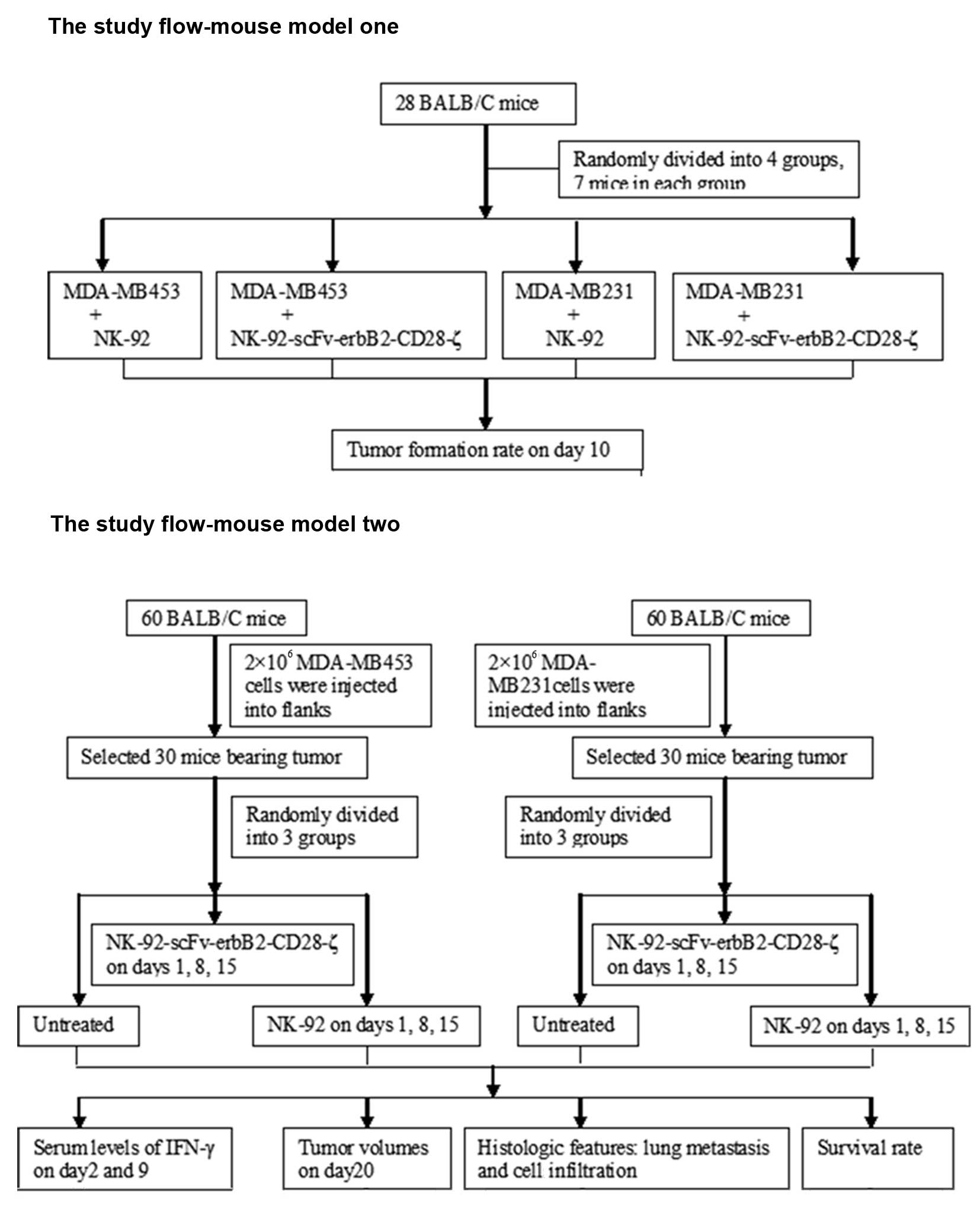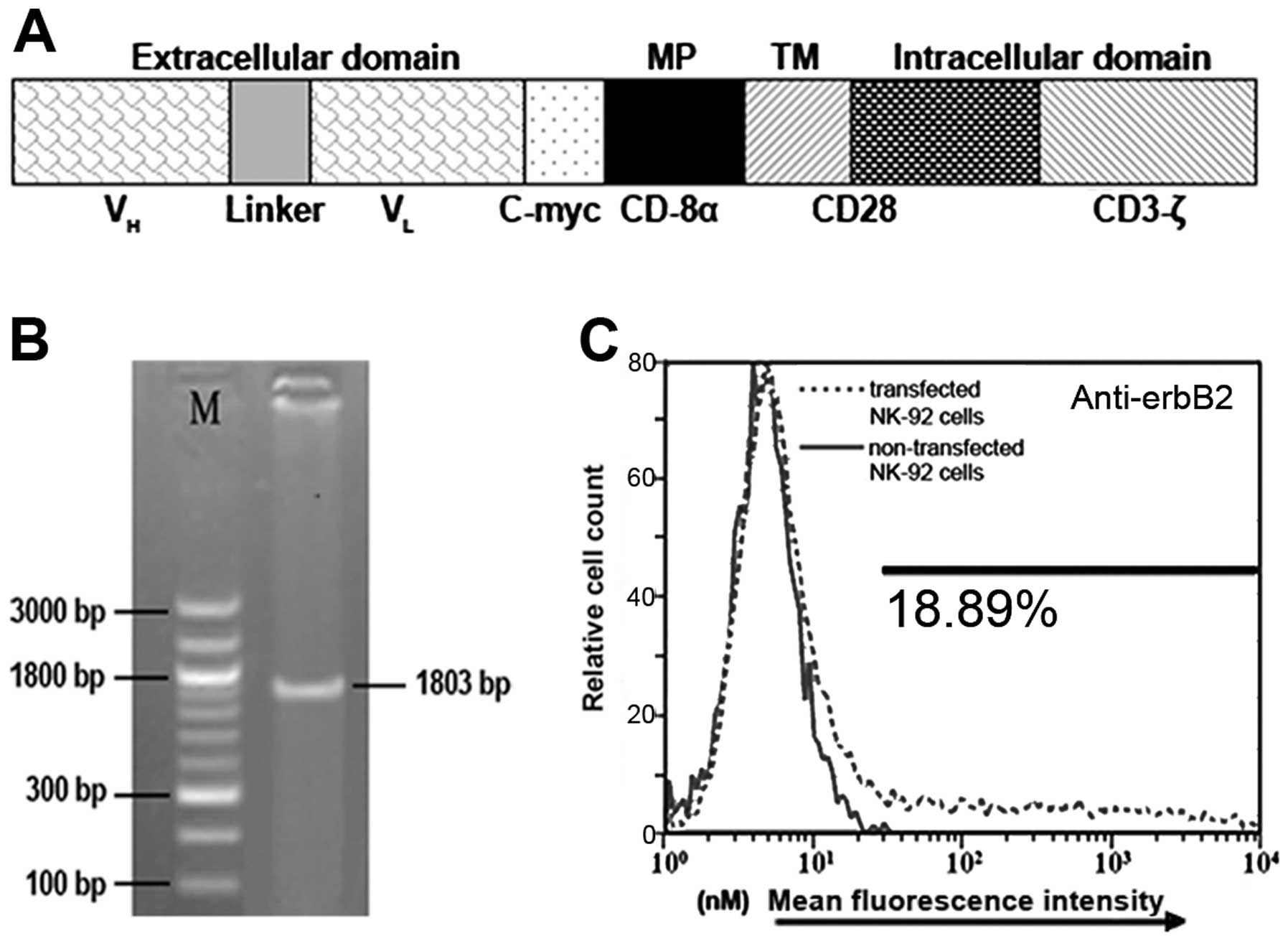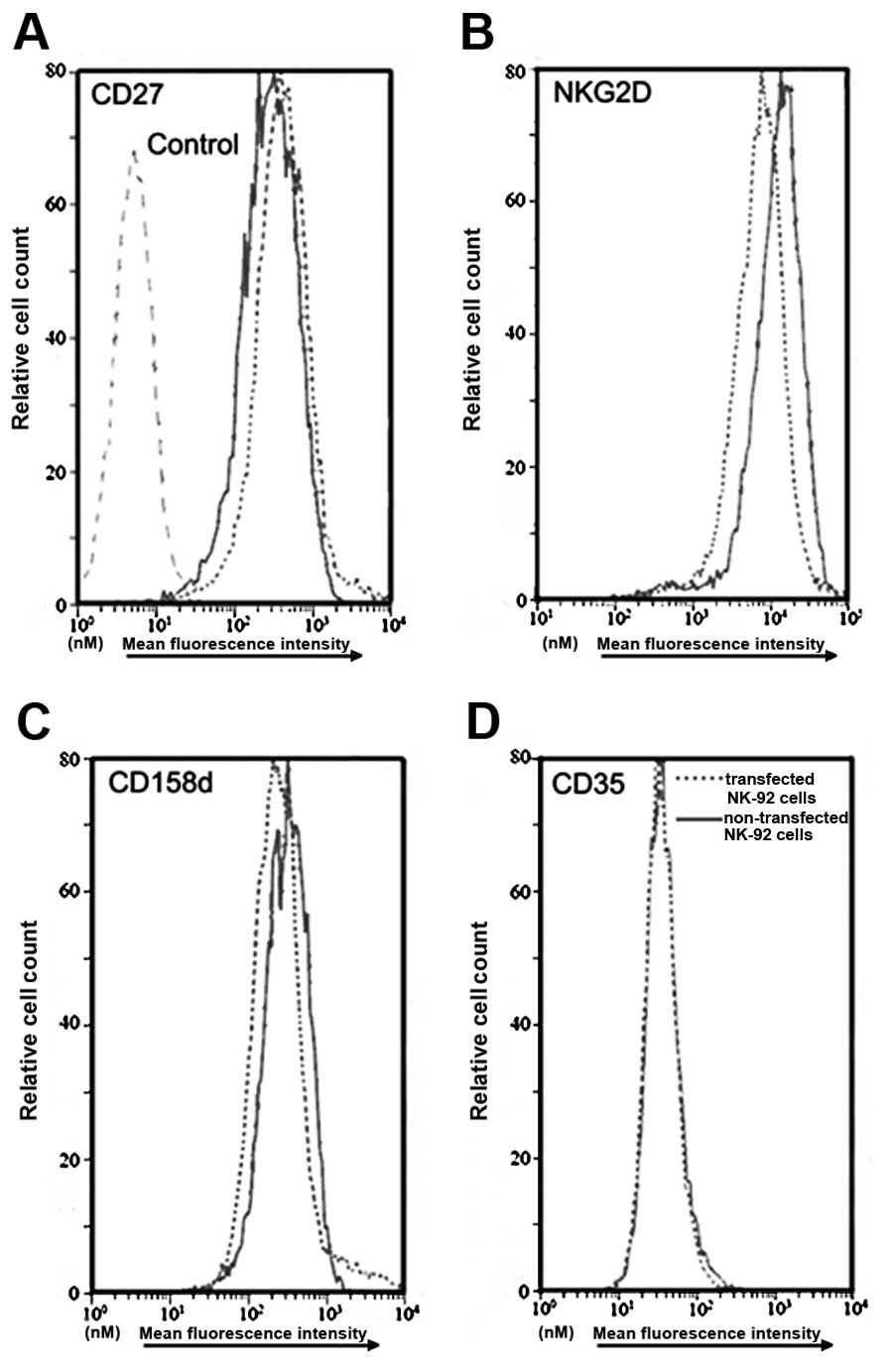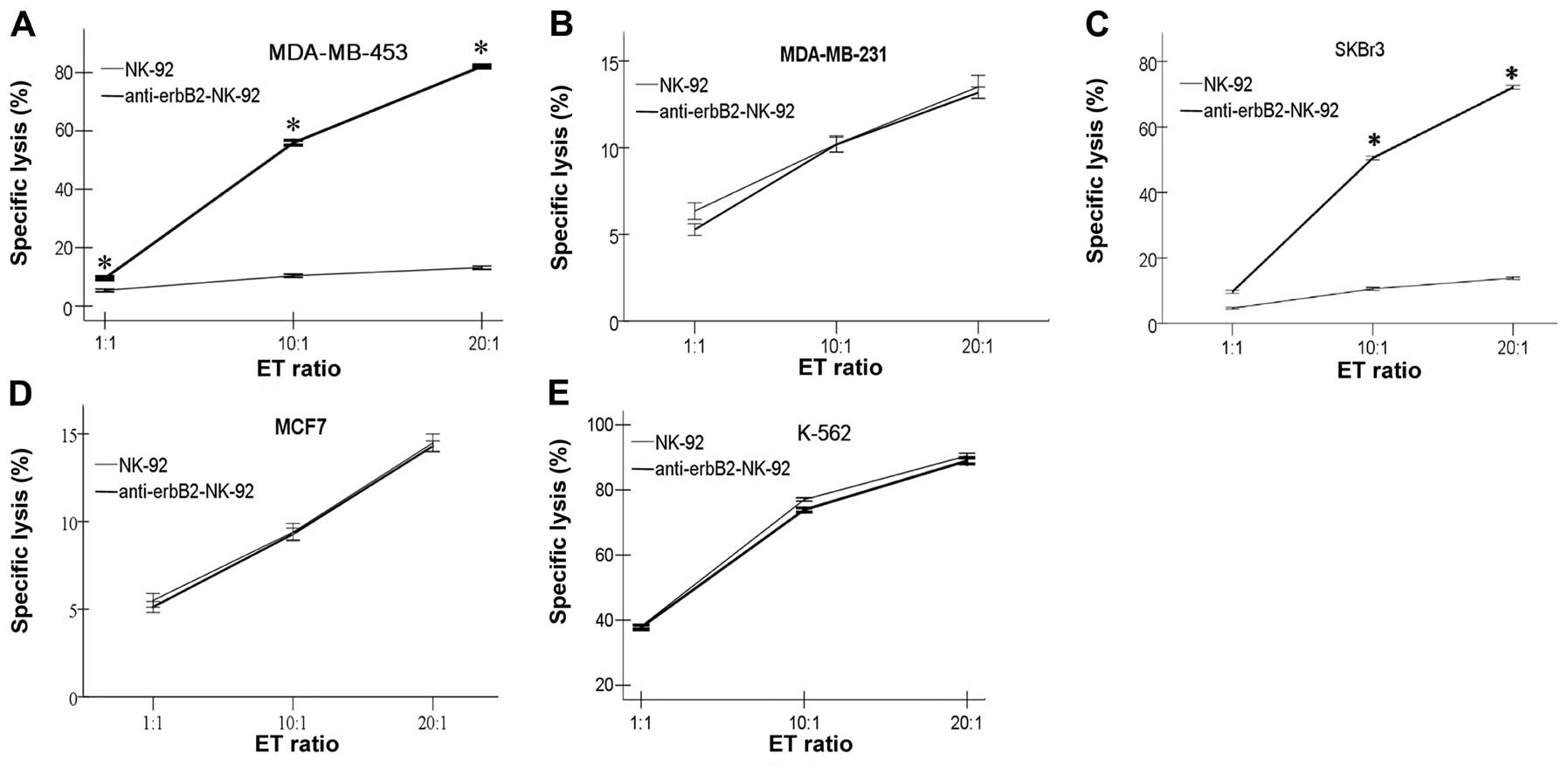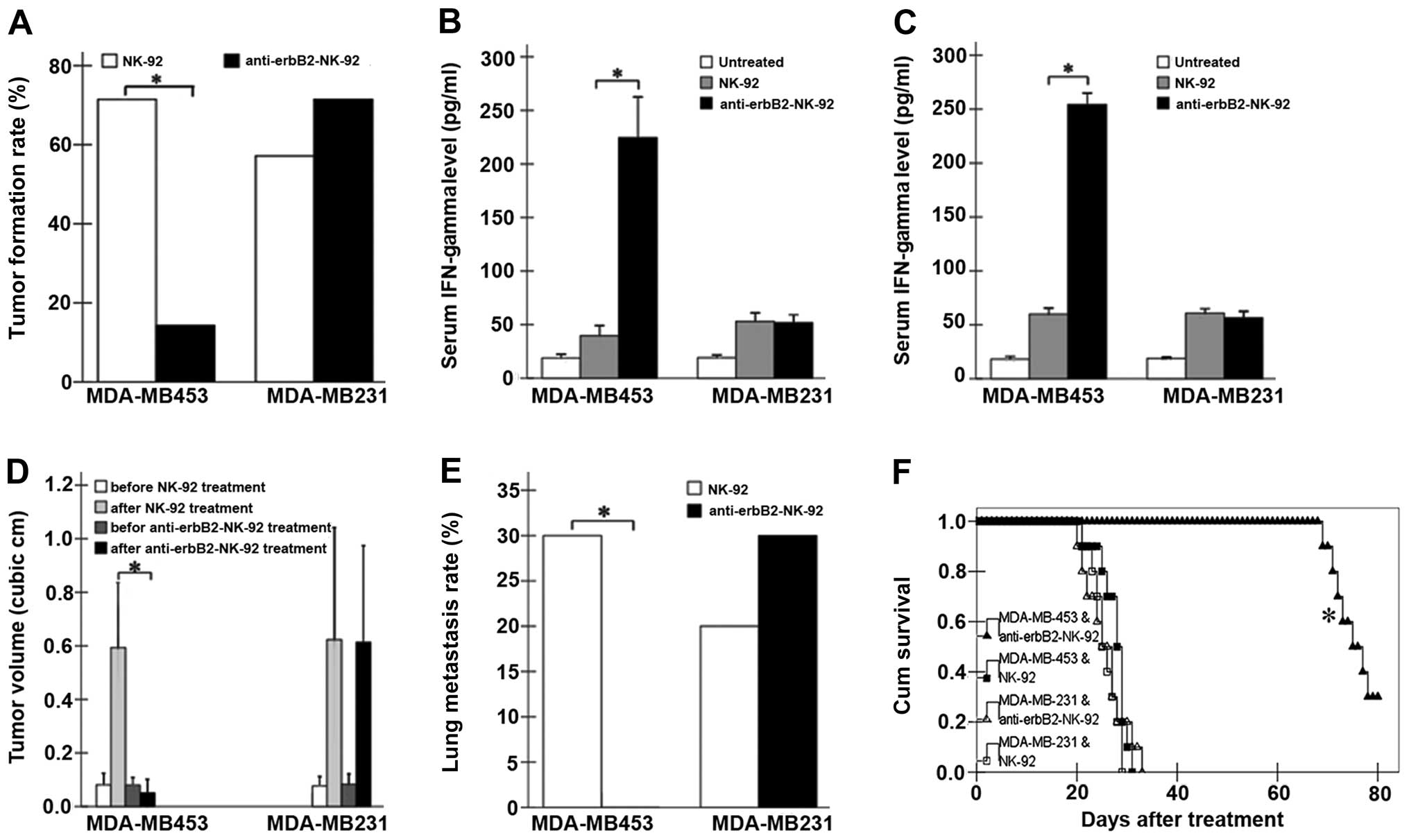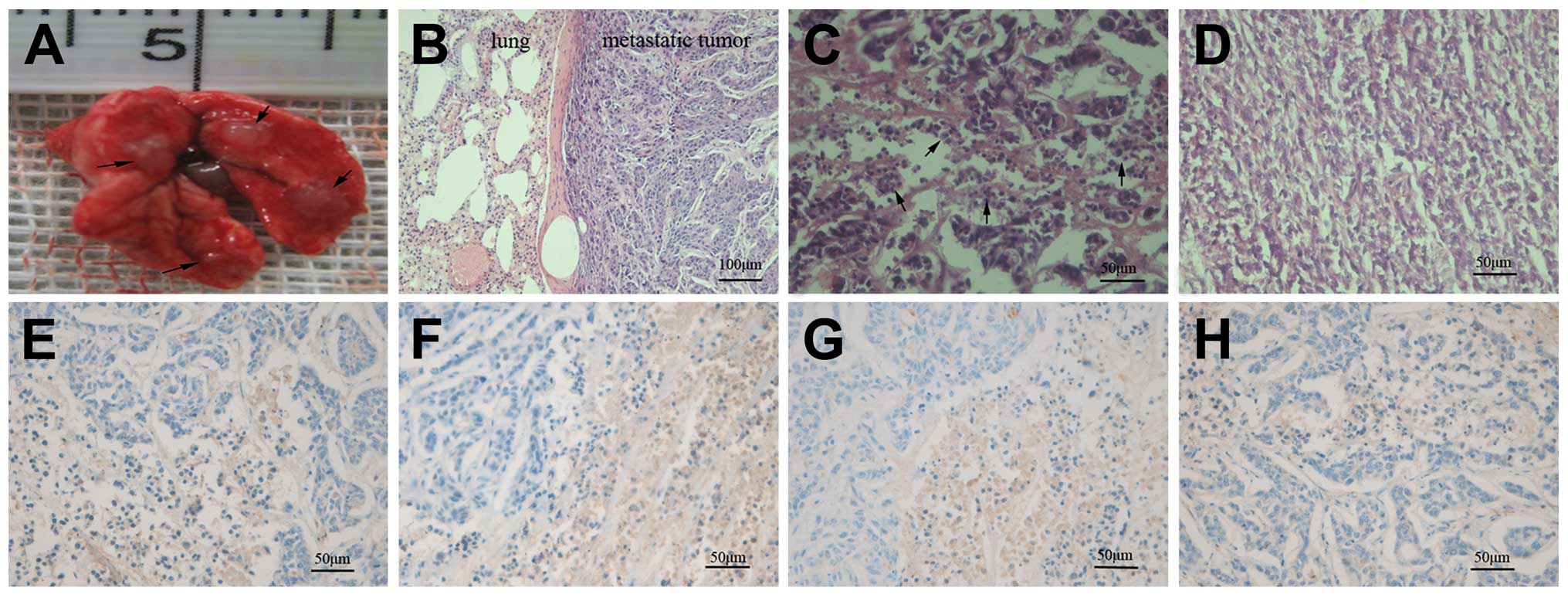|
1
|
Yokoyama WM, Kim S and French AR: The
dynamic life of natural killer cells. Annu Rev Immunol. 22:405–429.
2004. View Article : Google Scholar : PubMed/NCBI
|
|
2
|
McKenna DH Jr, Sumstad D, Bostrom N,
Kadidlo DM, Fautsch S, McNearney S, Dewaard R, McGlave PB, Weisdorf
DJ, Wagner JE, McCullough J and Miller JS: Good manufacturing
practices production of natural killer cells for immunotherapy: a
six-year single-institution experience. Transfusion. 47:520–528.
2007. View Article : Google Scholar : PubMed/NCBI
Trinchieri G: Biology of natural killer
cells. Adv Immunol. 47:187–376. 1989. View Article : Google Scholar : PubMed/NCBI
|
|
3
|
Smith BR, Rosenthal DS and Ault KA:
Natural killer lymphocytes in hairy cell leukemia: presence of
phenotypically identifiable cells with defective functional
activity. Exp Hematol. 13:189–193. 1985.PubMed/NCBI
|
|
4
|
Gratwohl A, Brand R, Apperley J, Crawley
C, Ruutu T, Corradini P, Carreras E, Devergie A, Guglielmi C, Kolb
HJ and Niederwieser D: Chronic Leukemia Working Party of the
European Group for Blood and Marrow Transplantation: Allogeneic
hematopoietic stem cell transplantation for chronic myeloid
leukemia in Europe 2006: transplant activity, long-term data and
current results. An analysis by the Chronic Leukemia Working Party
of the European Group for Blood and Marrow Transplantation (EBMT).
Haematologica. 91:513–521. 2006.PubMed/NCBI
|
|
5
|
Maki G, Tam YK, Berkahn L and Klingemann
HG: Ex vivo purging with NK-92 prior to autografting for chronic
myelogenous leukemia. Bone Marrow Transplant. 31:1119–1125. 2003.
View Article : Google Scholar : PubMed/NCBI
|
|
6
|
Tam YK, Miyagawa B, Ho VC and Klingemann
HG: Immunotherapy of malignant melanoma in a SCID mouse model using
the highly cytotoxic natural killer cell line NK-92. J Hematother.
8:281–290. 1999. View Article : Google Scholar : PubMed/NCBI
|
|
7
|
Suck G: Novel approaches using natural
killer cells in cancer therapy. Semin Cancer Biol. 16:412–418.
2006. View Article : Google Scholar : PubMed/NCBI
|
|
8
|
Suck G, Branch DR, Smyth MJ, Miller RG,
Vergidis J, Fahim S and Keating A: KHYG-1, a model for the study of
enhanced natural killer cell cytotoxicity. Exp Hematol.
33:1160–1171. 2005. View Article : Google Scholar : PubMed/NCBI
|
|
9
|
Moretta A, Bottino C, Vitale M, Pende D,
Cantoni C, Mingari MC, Biassoni R and Moretta L: Activating
receptors and coreceptors involved in human natural killer
cell-mediated cytolysis. Annu Rev Immunol. 19:197–223. 2001.
View Article : Google Scholar : PubMed/NCBI
|
|
10
|
Liang X, Weigand LU, Schuster IG, Eppinger
E, van der Griendt C, Schub A, Leisegang M, Sommermeyer D, Anderl
F, Han Y, Ellwart J, Moosmann A, Busch DH, Uckert W, Peschel C and
Krackhardt AM: A single TCR alpha-chain with dominant peptide
recognition in the allorestricted HER2/neu-specific T cell
repertoire. J Immunol. 184:1617–1629. 2010. View Article : Google Scholar : PubMed/NCBI
|
|
11
|
Zhao Y, Wang QJ, Yang S, Kochenderfer JN,
Zheng Z, Zhong X, Sadelain M, Eshhar Z, Rosenberg SA and Morgan RA:
A herceptin-based chimeric antigen receptor with modified signaling
domains leads to enhanced survival of transduced T lymphocytes and
antitumor activity. J Immunol. 183:5563–5574. 2009. View Article : Google Scholar : PubMed/NCBI
|
|
12
|
Zhong XS, Matsushita M, Plotkin J, Riviere
I and Sadelain M: Chimeric antigen receptors combining 4-1BB and
CD28 signaling domains augment PI3kinase/AKT/Bcl-XL activation and
CD8+ T cell-mediated tumor eradication. Mol Ther.
18:413–420. 2010. View Article : Google Scholar :
|
|
13
|
Tammana S, Huang X, Wong M, Milone MC, Ma
L, Levine BL, June CH, Wagner JE, Blazar BR and Zhou X: 4-1BB and
CD28 signaling plays a synergistic role in redirecting umbilical
cord blood T cells against B-cell malignancies. Hum Gene Ther.
21:75–86. 2010. View Article : Google Scholar :
|
|
14
|
Uherek C, Tonn T, Uherek B, Becker S,
Schnierle B, Klingemann HG and Wels W: Retargeting of natural
killer-cell cytolytic activity to ErbB2-expressing cancer cells
results in efficient and selective tumor cell destruction. Blood.
100:1265–1273. 2002.PubMed/NCBI
|
|
15
|
Schirrmann T and Pecher G: Tumor-specific
targeting of a cell line with natural killer cell activity by
asialoglycoprotein receptor gene transfer. Cancer Immunol
Immunother. 50:549–556. 2001. View Article : Google Scholar
|
|
16
|
Muller T, Uherek C, Maki G, Chow KU,
Schimpf A, Klingemann HG, Tonn T and Wels WS: Expression of a
CD20-specific chimeric antigen receptor enhances cytotoxic activity
of NK cells and overcomes NK-resistance of lymphoma and leukemia
cells. Cancer Immunol Immunother. 57:411–423. 2008. View Article : Google Scholar
|
|
17
|
Malmberg KJ, Bryceson YT, Carlsten M,
Andersson S, Bjorklund A, Bjorkstrom NK, Baumann BC, Fauriat C,
Alici E, Dilber MS and Ljunggren HG: NK cell-mediated targeting of
human cancer and possibilities for new means of immunotherapy.
Cancer Immunol Immunother. 57:1541–1552. 2008. View Article : Google Scholar : PubMed/NCBI
|
|
18
|
Kruschinski A, Moosmann A, Poschke I,
Norell H, Chmielewski M, Seliger B, Kiessling R, Blankenstein T,
Abken H and Charo J: Engineering antigen-specific primary human NK
cells against HER-2 positive carcinomas. Proc Natl Acad Sci USA.
105:17481–17486. 2008. View Article : Google Scholar : PubMed/NCBI
|
|
19
|
Boissel L, Betancur M, Wels WS, Tuncer H
and Klingemann H: Transfection with mRNA for CD19 specific chimeric
antigen receptor restores NK cell mediated killing of CLL cells.
Leuk Res. 33:1255–1259. 2009. View Article : Google Scholar : PubMed/NCBI
|
|
20
|
Zhang T, Barber A and Sentman CL:
Generation of antitumor responses by genetic modification of
primary human T cells with a chimeric NKG2D receptor. Cancer Res.
66:5927–5933. 2006. View Article : Google Scholar : PubMed/NCBI
|
|
21
|
Darcy PK, Kershaw MH, Trapani JA and Smyth
MJ: Expression in cytotoxic T lymphocytes of a single-chain
anti-carcinoembryonic antigen antibody. Redirected Fas
ligand-mediated lysis of colon carcinoma. Eur J Immunol.
28:1663–1672. 1998. View Article : Google Scholar : PubMed/NCBI
|
|
22
|
Ruggeri L, Capanni M, Urbani E, Perruccio
K, Shlomchik WD, Tosti A, Posati S, Rogaia D, Frassoni F, Aversa F,
Martelli MF and Velardi A: Effectiveness of donor natural killer
cell alloreactivity in mismatched hematopoietic transplants.
Science. 295:2097–2100. 2002. View Article : Google Scholar : PubMed/NCBI
|
|
23
|
Tonn T, Becker S, Esser R, Schwabe D and
Seifried E: Cellular immunotherapy of malignancies using the clonal
natural killer cell line NK-92. J Hematother Stem Cell Res.
10:535–544. 2001. View Article : Google Scholar : PubMed/NCBI
|
|
24
|
Press MF, Cordon-Cardo C and Slamon DJ:
Expression of the HER-2/neu proto-oncogene in normal human adult
and fetal tissues. Oncogene. 5:953–962. 1990.PubMed/NCBI
|
|
25
|
Imai C, Iwamoto S and Campana D: Genetic
modification of primary natural killer cells overcomes inhibitory
signals and induces specific killing of leukemic cells. Blood.
106:376–383. 2005. View Article : Google Scholar : PubMed/NCBI
|
|
26
|
Tran AC, Zhang D, Byrn R and Roberts MR:
Chimeric zeta-receptors direct human natural killer (NK) effector
function to permit killing of NK-resistant tumor cells and
HIV-infected T lymphocytes. J Immunol. 155:1000–1009.
1995.PubMed/NCBI
|
|
27
|
Roberts MR, Cooke KS, Tran AC, Smith KA,
Lin WY, Wang M, Dull TJ, Farson D, Zsebo KM and Finer MH:
Antigen-specific cytolysis by neutrophils and NK cells expressing
chimeric immune receptors bearing zeta or gamma signaling domains.
J Immunol. 161:375–384. 1998.PubMed/NCBI
|
|
28
|
Tran J and Kung SK: Lentiviral vectors
mediate stable and efficient gene delivery into primary murine
natural killer cells. Mol Ther. 15:1331–1339. 2007. View Article : Google Scholar : PubMed/NCBI
|
|
29
|
Piechocki MP, Ho YS, Pilon S and Wei WZ:
Human ErbB-2 (Her-2) transgenic mice: a model system for testing
Her-2 based vaccines. J Immunol. 171:5787–5794. 2003. View Article : Google Scholar : PubMed/NCBI
|
|
30
|
Cohen JL, Boyer O, Thomas-Vaslin V and
Klatzmann D: Suicide gene-mediated modulation of graft-versus-host
disease. Leuk Lymphoma. 34:473–480. 1999.PubMed/NCBI
|
|
31
|
Thomis DC, Marktel S, Bonini C, Traversari
C, Gilman M, Bordignon C and Clackson T: A Fas-based suicide switch
in human T cells for the treatment of graft-versus-host disease.
Blood. 97:1249–1257. 2001. View Article : Google Scholar : PubMed/NCBI
|
|
32
|
Russell JH and Ley TJ: Lymphocyte-mediated
cytotoxicity. Annu Rev Immunol. 20:323–370. 2002. View Article : Google Scholar : PubMed/NCBI
|
|
33
|
Hallett WH and Murphy WJ: Positive and
negative regulation of natural killer cells: therapeutic
implications. Semin Cancer Biol. 16:367–382. 2006. View Article : Google Scholar : PubMed/NCBI
|
|
34
|
Uemura A, Takehara T, Miyagi T, Suzuki T,
Tatsumi T, Ohkawa K, Kanto T, Hiramatsu N and Hayashi N: Natural
killer cell is a major producer of interferon gamma that is
critical for the IL-12-induced anti tumor effect in mice. Cancer
Immunol Immunother. 59:453–463. 2010. View Article : Google Scholar
|
|
35
|
Pegram HJ, Jackson JT, Smyth MJ, Kershaw
MH and Darcy PK: Adoptive transfer of gene-modified primary NK
cells can specifically inhibit tumor progression in vivo. J
Immunol. 181:3449–3455. 2008. View Article : Google Scholar : PubMed/NCBI
|















